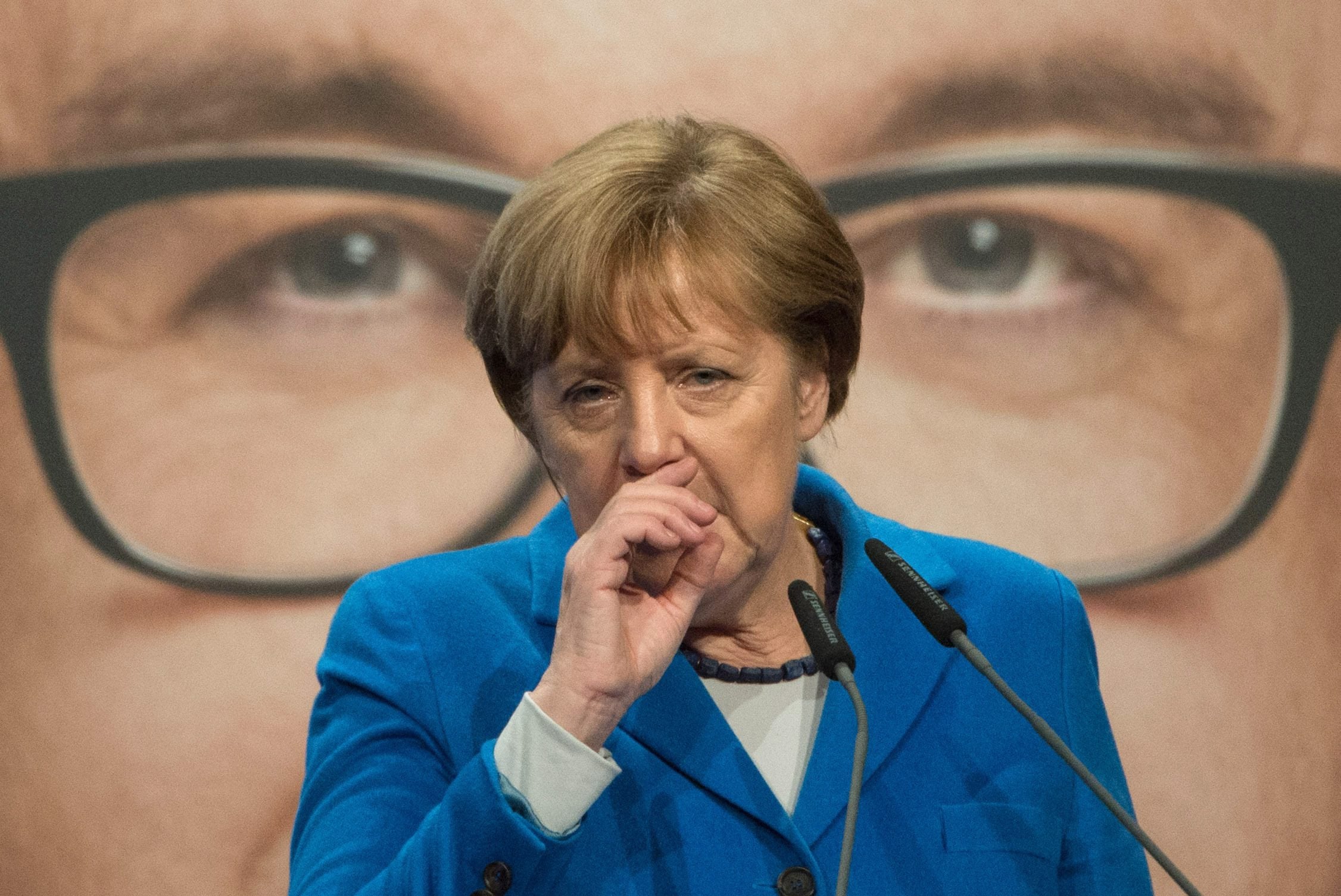Germany election results: Disaster for Merkel as exit polls suggest defeat in two out of three regional elections
The elections saw the rise of the anti-immigration party AfD

Your support helps us to tell the story
From reproductive rights to climate change to Big Tech, The Independent is on the ground when the story is developing. Whether it's investigating the financials of Elon Musk's pro-Trump PAC or producing our latest documentary, 'The A Word', which shines a light on the American women fighting for reproductive rights, we know how important it is to parse out the facts from the messaging.
At such a critical moment in US history, we need reporters on the ground. Your donation allows us to keep sending journalists to speak to both sides of the story.
The Independent is trusted by Americans across the entire political spectrum. And unlike many other quality news outlets, we choose not to lock Americans out of our reporting and analysis with paywalls. We believe quality journalism should be available to everyone, paid for by those who can afford it.
Your support makes all the difference.Chancellor Angela Merkel’s ruling conservatives have suffered humiliating losses to the anti-immigrant Alternative für Deutschland (AfD) party in three key state elections seen as a referendum on her “open door” refugee policy which allowed more than a million migrants to enter the country last year.
The real shock of Sunday night's polling was the scale of AfD’s gains, which easily entered all three legislatures.
The three-year-old party (AfD) - which has campaigned against Mrs Merkel's open-borders approach - won 15.1% of the vote in Baden-Wuerttemberg, official results showed.
It scored about 12.5% in Rhineland-Palatinate and 24% in Saxony-Anhalt, where it finished second, according to projections by ARD and ZDF television with most districts counted.
At AfD headquarters in Berlin where the results were being monitored last night the atmosphere was described as “ ecstatic”. A jubilant Frauke Petry, the party leader declared on television: “We are now a party for the whole of Germany.” Alexander Gauland, another leading AfD figure said: “Ms Merkel’s refugee policy has lost her party votes – we, by contrast, have made it clear from the start that we don’t want to take them in.”
Ms Merkel was not immediately available for comment. However initial opinion survey results showed that a large percentage of AfD votes came from disgruntled former supporters of her ruling Christian Democrats’ Union (CDU). In Saxony Anhalt alone, 76 per cent of the electorate thought that the main parties were “not taking their concerns about refugees seriously”, a German TV poll found last night.
The Chancellor’s CDU was nevertheless expected to hang on to power in Saxony Anhalt as the largest party, in coalition with Social Democrats and Greens. In Baden Württemberg, Ms Merkel’s party was humiliated by the ruling Green party, which won 32 per cent of the vote – its best result ever. Her party was expected to become a junior coalition partner in the state government under the leadership of the Greens.
In Rhineland Palatinate Julia Klöckner, the CDU’s state leader and Ms Merkel’s favourite, failed to oust Malu Dreyer, the state’s current Social Democrat prime minister who was expected to form a governing coalition with other parties.
The result will increase discontent within Ms Merkel’s party and prompt renewed calls for a change of course on refugee policy. However it was thought unlikely to pose any immediate threat to her position as Chancellor as her refugee policies continue to enjoy the support of many conservatives as well as Social Democrats and Greens.
But the result marked a significant and, to many Germans, disturbing victory for the AfD. Like its next-door neighbour and closest European ally, France, Germany is now saddled with a vehemently anti-immigration, right-wing nationalist party whose presence has already sharpened political debate and contributed to the spread of racially motivated, anti-migrant violence.
Less than three years since its founding, the party which says it wants to put the Fatherland back in Germany now holds parliamentary seats in eight of Germany’s 16 federal states. In two other state elections in Berlin and Mecklenburg-Pomerania this autumn, the party is also almost certain to enter both parliaments. It also has good chances of winning seats in Germany’s most populous state of North Rhine Westfalia in 2017 elections there.
With a full German general election in the autumn next year, the AfD at the moment would seem well placed to enter Berlin’s national Bundestag parliament by the end of 2017. All other parties have ruled out the idea of a coalition with the AfD, so the arithmetic of Teutonic politics dictates that for the foreseeable future Germany may be run by a succession of grand coalition governments made up of its two main parties.
Angela Merkel claims that she is on the way to solving Europe’s worst refugee crisis since the Second World War. Much depends on whether she can broker a convincing deal with Turkey and her European allies later this week.
By the end of next year, after federal elections, Ms Merkel may still be in the saddle as Germany’s first woman Chancellor and leading her third consecutive grand coalition government. But her hitherto unblemished record may be stained. AfD seems certain to repeat its local success in a general election - in which case Ms Merkel’s critics will see her as the German leader who paved the way for a racist and nationalist party to gain a toehold in the national parliament for the first time since 1945.
Join our commenting forum
Join thought-provoking conversations, follow other Independent readers and see their replies
Comments